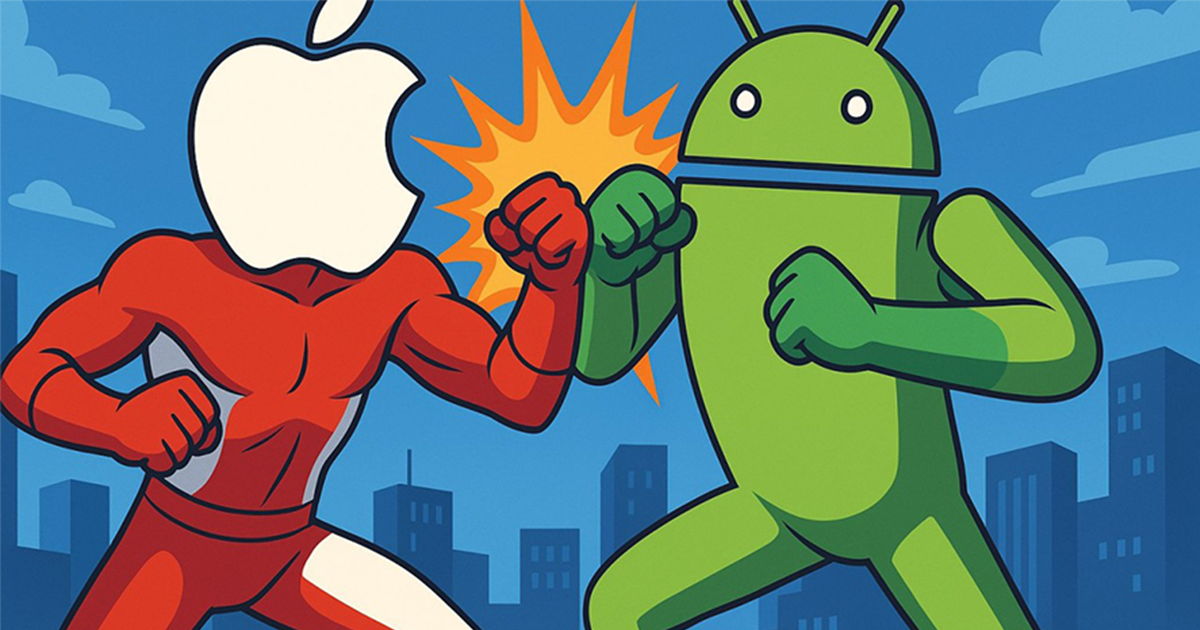Apple Intelligence vs. Android AI: What Mobile Developers Need to Know
Mobile AI: What It Means for Developers (And Why It Won’t Replace Apps)
The Apple vs Android rivalry keeps evolving, and AI is the new frontline. Both platforms are introducing AI features, but they’re taking very different paths. Apple sticks to its privacy-first mindset with on-device AI. Android pushes for flexible, feature-rich experiences.
At a glance, it’s exciting. In practice, it’s also fragmented, buggy, and occasionally frustrating for developers.
So, how do we keep up? Let’s unpack it.
Apple Intelligence: Focused, Private, and Careful
Apple’s AI strategy stays true to its brand. It’s clean, privacy-focused, and deeply tied to hardware. Still, it comes with its own set of limits.
Where Apple Gets It Right
-
On-device processing keeps data private and fast
-
Private Cloud Compute handles heavier tasks without exposing user info
-
Tight hardware integration means features like background removal work smoothly
-
GPT-4 access built into the system for advanced requests
Where It Struggles
-
Slow updates. The iPhone 16 launched with little AI visibility
-
Limited device coverage. AI tools are reserved for newer devices like iPhone 15 Pro or M1/M2 Macs
-
Weak everyday use cases. Some features, like Genmoji, feel like temporary trends
What Developers Should Do
-
Use Siri Shortcuts and App Intents to voice-activate core features
-
Implement Core ML for private, on-device AI tasks
-
Prepare for gradual adoption. Not every user will have AI-ready devices tomorrow
Android AI: Feature-Packed, Less Private
Google takes a different approach. Android AI is practical, powerful, and relies heavily on cloud services. That adds flexibility but also raises privacy concerns.
Where Android Gets It Right
-
Rich AI features. Live Translate, Circle to Search, and Gemini AI offer real-world value
-
Better automation. Google Assistant and Bixby handle complex commands
-
Broader device reach. While Pixel leads the pack, Samsung’s Galaxy AI is solid
Where It’s Problematic
-
Cloud-reliant. Many AI tools need server-side processing
-
Inconsistent support. AI performance varies by brand and model
What Developers Should Do
-
Integrate Google App Actions for smart app controls
-
Use Gemini API to handle AI-driven conversations and commands
-
Test AI features on different brands. Android’s fragmentation is real
Will AI Replace Mobile Apps?
Not really. AI will reshape how users interact with apps, but it won’t replace them. Simple actions, like ordering coffee or checking the weather, might skip the UI. Complex tasks won’t.
Picture this: instead of opening the Starbucks app, a user says, "Hey Siri, order my usual." The app still works in the background. No interface needed.
But for things like banking, social media, or photo editing, users will still need the full app experience. Voice commands and chatbots aren’t built for multi-step workflows.
What Mobile Developers Should Focus On
A few clear priorities, whether you build for iOS, Android, or both.
For iOS
-
Add Siri Shortcuts and App Intents
-
Use Core ML for on-device AI
-
Prioritize user privacy. Apple users care about this
For Android
-
Integrate Google Assistant and Bixby
-
Leverage the Gemini API for chat-style actions
-
Plan for device variations. AI behavior changes from one brand to another
Cross-Platform Moves
-
Build AI plugins for Gemini or ChatGPT integration
-
Position on-device AI as a premium, privacy-friendly feature
-
Use AI for accessibility tools like voice navigation or real-time captions
The Future of Mobile AI
Apple is playing the long, privacy-centered game. Android is moving fast, sometimes at the cost of consistency. Both platforms have gaps.
For developers, the priority isn’t picking sides. It’s understanding how each platform handles AI and using those tools to improve our apps.
Final Takeaway
If your app handles routine tasks, AI integration should be on your roadmap.
If your app is complex, use AI to enhance, not replace, the experience.
The smartest apps won’t compete with AI.
They’ll use it to stay ahead.

